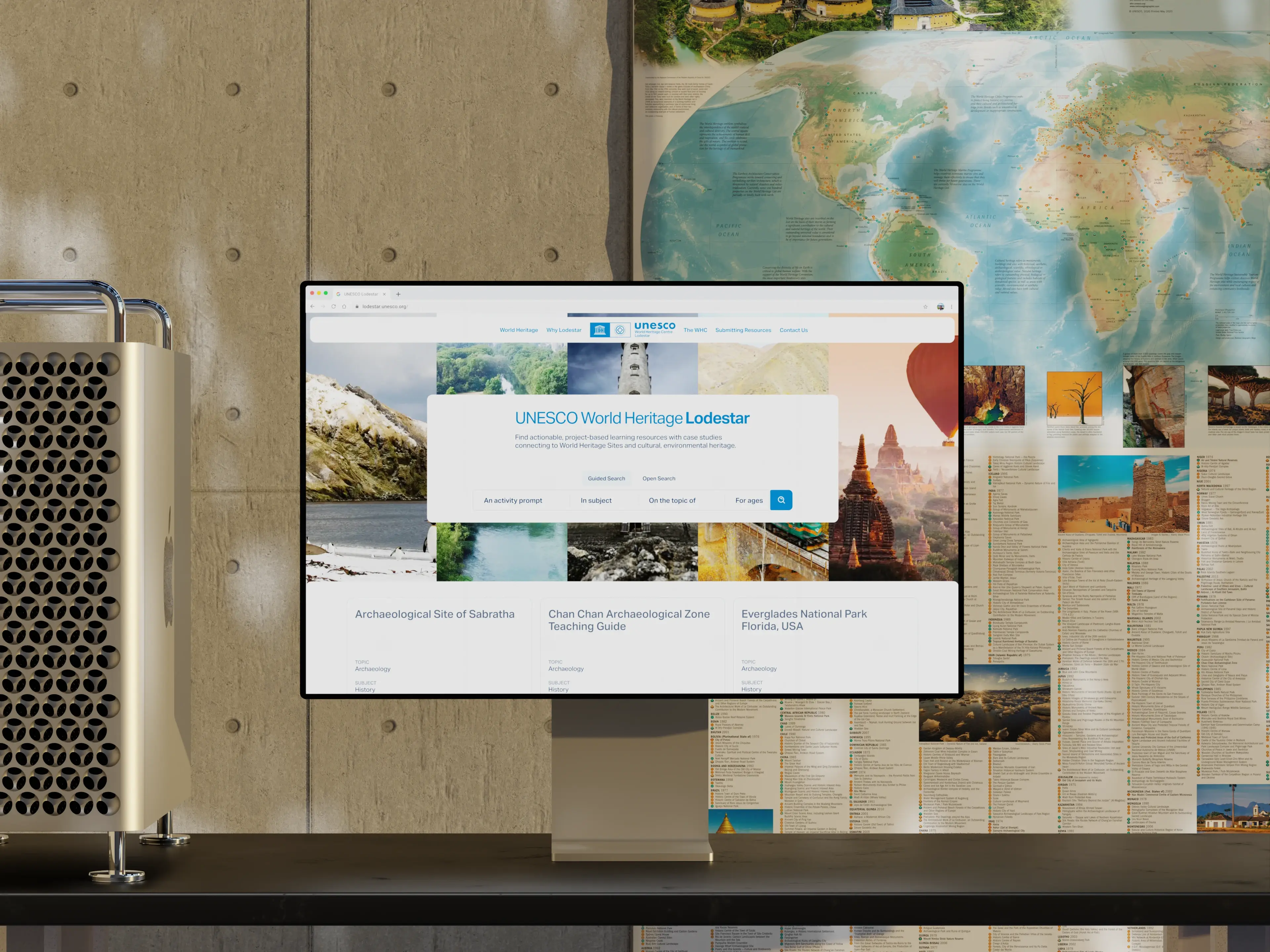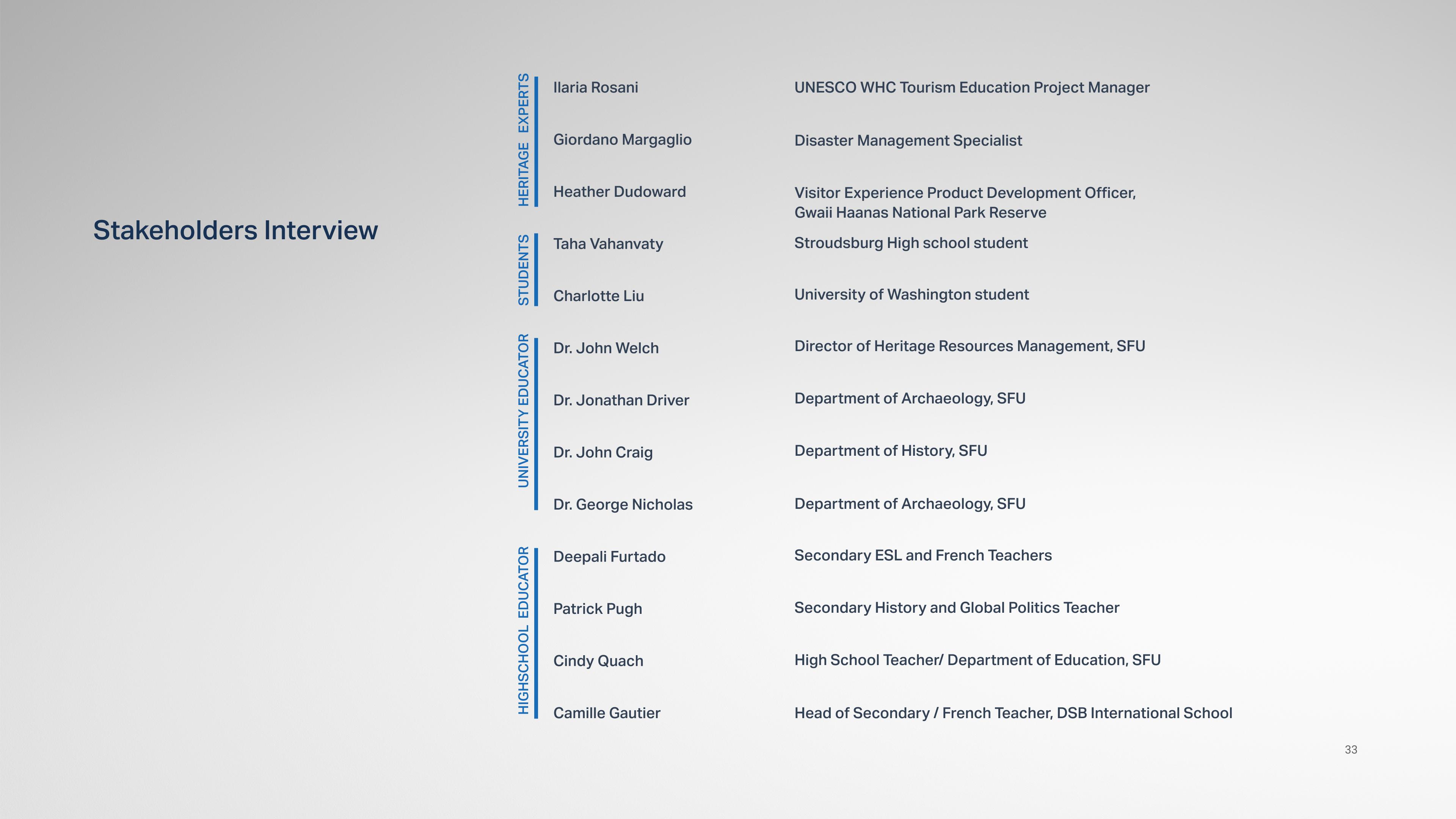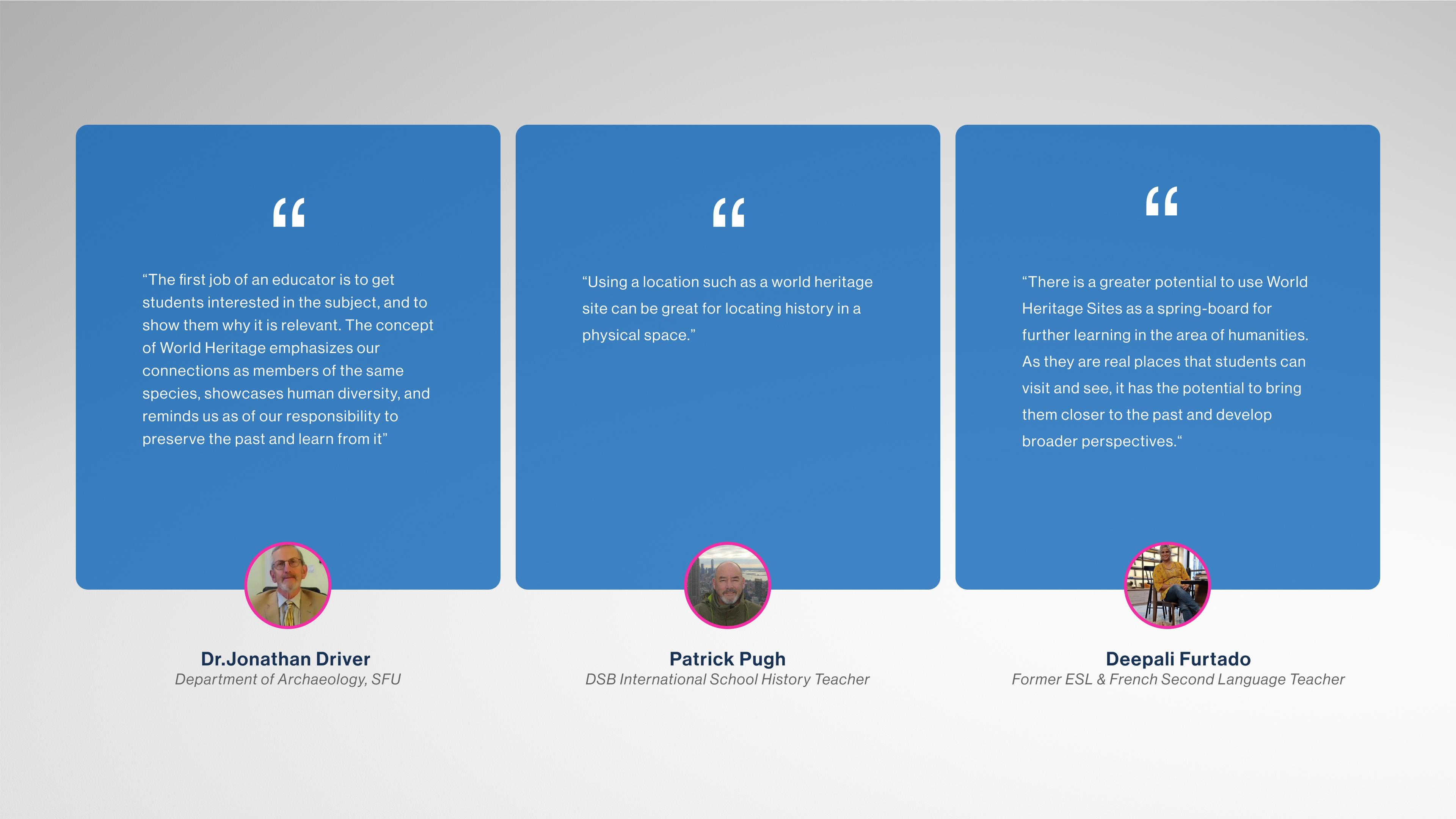Context
- 6 week project completed as part of Senior Experience Design Course in Vancouver, Canada.

As project lead, I led our team in determining the area of intervention and framing. As content strategist I determined the content design of the site (the lesson plan in particular) and wrote its corresponding copy. I conducted user stakeholder research and through expert interviews to drive the project. After the project was over, I revamped the interaction and visual design decisions as it felt weaker in its initial execution.
UNESCO is a UN agency who’s main mission is to build a culture of peace and sustainability through education, communication and dialogue between different people I focused on their World Heritage Centre which preserves and protects landmarks that bring immense value to the culture and the environment of humanity.
“What makes the concept of World Heritage exceptional is its universal application. World Heritage sites belong to all the peoples of the world, irrespective of the territory on which they are located.”

Our initial primary research of 13 student and 11 educator survey respondents, helped me frame our interviews with 13 experts, including university and secondary school educators, second-language educators, and professionals working with UNESCO.


Synthesizing the research gave me 4 key insights to drive our intervention
Second language teachers use cultural heritage to bring personal bearing to language education.
Educators, need age-specific, modular actionable lesson resources.
Open-ended middle school curriculum = freedom to bring in external topics such as World Heritage.
World Heritage is eurocentric and so finding resources on lesser-known non-european Heritage Sites is difficult
We used the following questions to constrain our scope and frame our intervention:
How might we make information architecture more systematic and guided to reduce cognitive overhead when accessing educational resources?
How might we leverage project-based learning to re-orient UNESCO’s existing educational resources towards its World Heritage Sites?
A content distribution platform run by the UNESCO World Heritage Centre, comprising of curated lesson plans accessible to secondary school educators globally.
Lesson Plans are based on project-based learning using World Heritage sites as foundational case-studies to build class projects on. We utilised the SMART(Specific, Measurable, Attainable, Relevant, and, Timely) learning objectives guidelines to guide our information architecture.






Along with providing materials such as videos, worksheets etc, I used project-based learning to help broaden the scope of lesson plans, making them applicable despite curriculum differences.


Lodestar expedites the lesson delivery process, allowing teachers to directly add plans to their online learning platform. For the scope of this project, I only considered the most-used education platform in secondary schools, Google Classroom.



While UNESCO channels such as their main website lacked intuitive information architecture, I found that a redesign would be simply fixing a painpoint, as compared to creating meaningful value for UNESCO, and for its stakeholders.
I think that if more time were allocated to the project,I would extend the customer experience through creating convenient touchpoints in educational platforms such as Google classrooms.
Given that lesson plans with the UNESCO trademark would need quality assurance, a next step would be creating a way for teachers to submit their own plans for verification and upload.